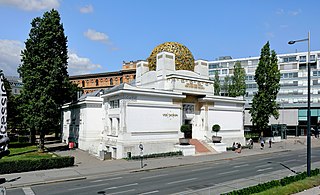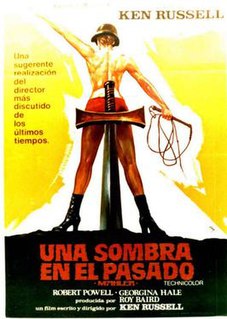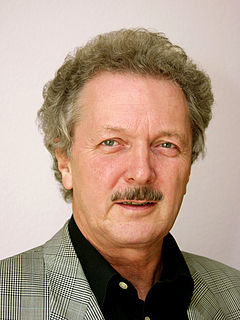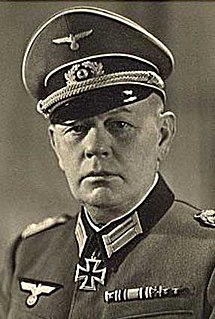This page is based on this
Wikipedia article Text is available under the
CC BY-SA 4.0 license; additional terms may apply.
Images, videos and audio are available under their respective licenses.

The Vienna Secession was an art movement formed in 1897 by a group of Austrian artists who had resigned from the Association of Austrian Artists, housed in the Vienna Künstlerhaus. This movement included painters, sculptors, and architects. The first president of the Secession was Gustav Klimt, and Rudolf von Alt was made honorary president. Its official magazine was called Ver Sacrum.

Mahler is a 1974 biographical film based on the life of Austro-Bohemian composer Gustav Mahler. It was written and directed by Ken Russell for Goodtimes Enterprises, and starred Robert Powell as Gustav Mahler and Georgina Hale as Alma Mahler. The film was entered into the 1974 Cannes Film Festival, where it won the Technical Grand Prize.
Domenico Semeraro is a Swiss bobsledder who competed in the early 1990s. At the 1994 Winter Olympics in Lillehammer, he won a silver medal in the four-man event with his teammates Gustav Weder, Donat Acklin and Kurt Meier.
Lorenz Schindelholz is a Swiss bobsledder who competed in the late 1980s and early 1990s. He won a bronze medal in the four-man event with his teammates Gustav Weder, Donat Acklin and Curdin Morell at the 1992 Winter Olympics in Albertville.
Curdin Morell is a Swiss bobsledder who competed in the late 1980s and the early 1990s. At the 1992 Winter Olympics in Albertville, he won a bronze medal in the four-man event with teammates Gustav Weder, Donat Acklin and Lorenz Schindelholz.
Karl Wagner is the name of:
Hans Wagner is a West German bobsledder who competed in the late 1970s. He won the gold medal in the four-man event at the 1979 FIBT World Championships in Königssee.
Hans Wagner may refer to:

General of the Cavalry was a General of the branch OF8-rank in the Imperial Army, the interwar Reichswehr, and the Wehrmacht. It was the second-highest General officer rank below Generaloberst. Artillery officers of equivalent rank were called General der Artillerie, and infantry officers of equivalent rank General der Infanterie. The Wehrmacht also created General der Panzertruppen, General der Gebirgstruppen, General der Pioniere (engineers), General der Flieger (aviators), General der Fallschirmtruppen, and General der Nachrichtentruppen

The 95th Infantry Division was a German division in World War II. It was formed on 19 September 1939 in Wildflecken and Hammelburg.
Events in the year 1887 in Germany.
Events in the year 1970 in Germany.
Events in the year 1971 in Germany.

The Richard Wagner Monument is a memorial sculpture of Richard Wagner by Gustav Eberlein, located in Tiergarten in Berlin, Germany. It was created during 1901–1903 and is installed along Tiergartenstraße across from the Indian Embassy. It depicts Wagner in a seated pose and is covered by a roof.
Events from the year 1941 in Sweden

Chief of Civil Administration was an office introduced in Nazi Germany, operational during World War II. Its task was to administer civil issues according to occupation law, with the primary purpose being the support of the military command in the operational areas of the German Army. CdZ would pass his authority to a corresponding civil government after the territory in question became in the rear of the operating armed forces.

Wolfram Wette is a German military historian and peace researcher. He is an author or editor of over 40 books on the history of Nazi Germany, including the seminal Germany and the Second World War series from the German Military History Research Office (MGFA).








